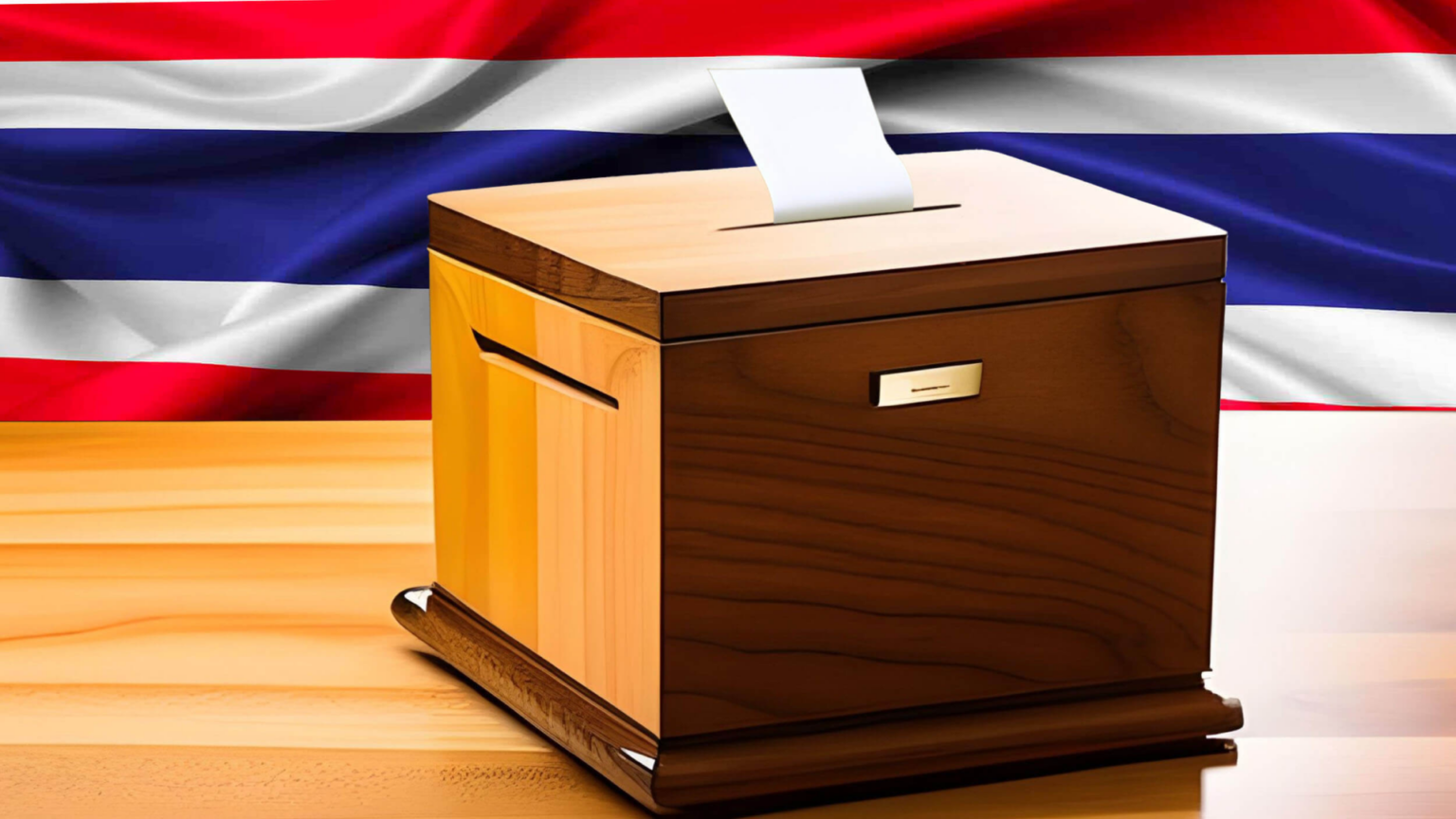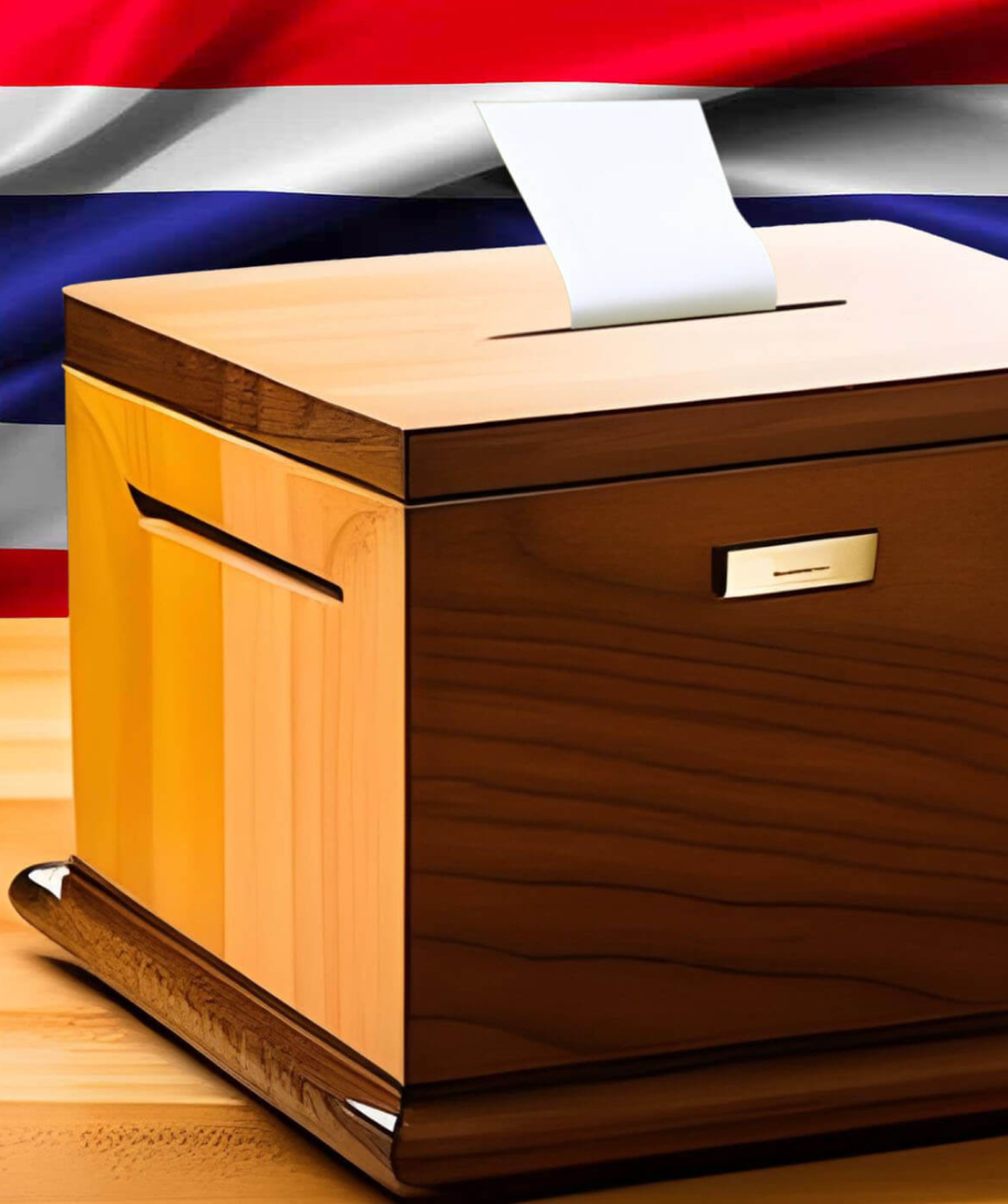

Thailand’s general elections are set to be held on May 14. Up to 70 political parties, both big and small, are running candidates in these elections hoping to win seats in the parliament. Candidates are actively joining debates countrywide to campaign for their parties. For many Thais, the upcoming elections offer a glint of hope for democracy and a better Thailand. But this is just the beginning or, perhaps, another chapter on a bumpy road to a free society.
Some key players for the upcoming elections include:
– Phalang Pracharath Party (PPRP) is a pro-military party with ties to the 2014 military junta. It was founded in 2018, a year before the last general election.
– Prawit Wongsuwon was named PPRP prime minister candidate for the upcoming election. He is a party leader and deputy chairman of the junta’s National Council for Peace and Order (NCPO). From 2008 to 2011, he served as the country’s Minister of Defense.
– Ruam Thai Sang Chart Party (the United Thai Nation Party) is an ultra-conservative party founded in 2021, based on the ideals of protecting the nation from foreign powers and “evil politicians.” Ruam Thai Sang Chart hopes to win the election with the support of die-hard Prayuth supporters.
– Prayuth Chan-o-cha is the military leader who seized power in the 2014 coup and has been prime minister of Thailand since then. In December 2022, Prayuth left PPRP to join the Ruam Thai Sang Chart Party.
– Pheu Thai Party (PTP) was founded by ousted former minister Thaksin Shinawatra, who was overthrown by a 2006 coup. The PTP aims to replace the People’s Power Party and Thai Rak Thai, which were dissolved in 2008 and 2007, respectively. Pheu Thai hopes to win votes by focusing on economic development and bread-and-butter issues.
– Paethongtharn Shinawatra is a political newcomer and businesswoman.
– Srettha Thavisin is a real-estate mogul and a former CEO of Sansiri, one of the country’s largest property developers.
– Chaikasem Nitisiri is the chief strategist of the party, who was previously appointed as Minister of Justice in 2013.
– Move Forward Party (MFP) is a social democratic and progressive party known for its anti-establishment stance. The party is the successor to the dissolved Future Forward Party, which called for democratic reforms.
– Pita Limjaroenrat, a businessman and social entrepreneur, is the MFP’s main leader.
This year marks the second election since the military seized power in a May 2014 coup. In 2019, many walked to polling stations hoping to restore the country’s democracy — but the results left them in despair. Though the Pheu Thai Party won the most seats, the election was designed to extend the rule of coup leader, General Prayuth Chan-o-cha. After all Members of Parliament were elected, senators joined the House of Representatives to vote for a prime minister. The key to keeping the military in power was the 250 senators, handpicked by the ruling junta, with more than a third linked to the military and police. Expectedly, 249 out of 250 senators (the senate speaker abstained per custom) voted for Prayuth Chan-ocha to be prime minister.
This time around, the architecture of the election remains the same: unfree and unfair. Just like many countries in Southeast Asia, Thailand suffers from the same pattern of authoritarianism. In March this year, Thailand’s parliament was dissolved by Prayuth ahead of the elections. Furthermore, the election will be held within the framework of the 2017 constitution, which was crafted by the junta — granting power to army leaders in politics, including the appointment of 250 senators, the Election Commission, and the Constitutional Court. It also paves the way for the upcoming “elections.”
In total, 500 MPs will be elected, but the 250 senators appointed by the junta will remain faithful to their boss. For that reason, a prime minister candidate needs at least 376 votes to be elected. But the pro-military parties only need 126 out of the 500 seats to win.
Though Prayuth Chan-o-cha left the military-backed PPRP to join the brand-new conservative United Thai Nation Party, compounding the rumor of the split between Prayuth and Prawit Wongsuwon, the bond between the two remains strong. The two are expected to be back together to form the government.
Since 2001, political parties tied to the former prime minister Thaksin Shinawatra won the largest number of votes in every election. Pheu Thai hopes for another “landslide” victory in the upcoming election. But the question is: Will votes triumph in the election designed by the military? Will the Pheu Thai party form a coalition with other pro-democracy parties, like the MFP? Or will it join forces with pro-military parties?
This is just the beginning. The next step is for the newly-elected government — hopefully led by pro-democracy parties — to facilitate drafting a new constitution by elected representatives and reform the military.
Many Thais hope the upcoming election will bring a better and freer Thailand. The road to democracy in the country still has a long way to go.
Join us in helping save lives and stand up to tyranny.

Reach out with any questions or support needs.
Become part of our mission-driven team.
Find answers to commonly asked questions in our FAQs.
Hit enter to search or ESC to close